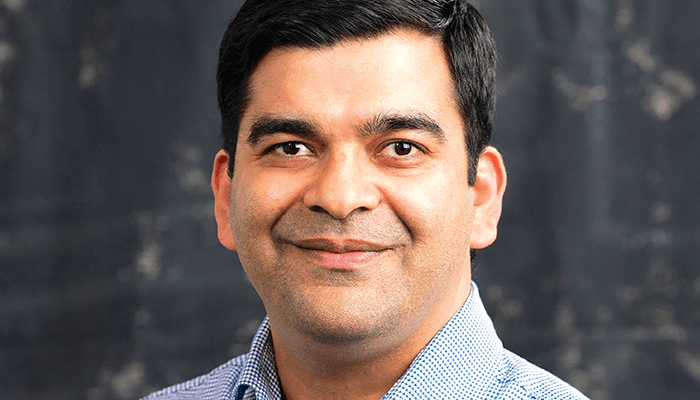
Himal Kandel is an ophthalmic outcomes researcher currently working as the Kornhauser Research Associate at the Save Sight Institute in Australia. His special research interests include evaluating the quality of life outcomes of patients with eye conditions. Here he talks about his global career, moving across optometry and ophthalmology and the importance of global health systems.
What initially inspired you to become involved in both ophthalmology and optometry?
I was born in a remote village in Nepal that was deprived of good health care services – we had to walk for two days to go to the nearest hospital. After high-school, I discovered that many relatives in my village had a visual impairment that could be corrected with a simple pair of glasses. I was amazed by how much a person’s quality of life could be improved with the right care, and I wanted to be a part of helping others see the world more clearly. Additionally, I have always been drawn to the scientific and technical aspects of medicine; ophthalmology and optometry offered a unique combination of those interests. That, alongside my mother’s practice of traditional medicine, was what inspired me to pursue a career in this field.
Can you tell me more about your time as a clinician and lecturer in Nepal, the Maldives, Eritrea, and Kenya? And why did you relocate so frequently?
While in Nepal, I was involved in organizing and providing clinical care in numerous eye and health camps in rural communities. I have always been interested in global health and the opportunity to make a positive impact on other communities in need. And that’s why I chose to work as a clinician and lecturer in various countries in Asia and Africa. In Nepal, rural communities were deprived of eye care services that were largely limited to cities. The Maldives relied on international ophthalmologists and optometrists as it did not have its own eye health workforce training center. I worked as a pioneer lecturer in the first optometry schools in Kenya and Eritrea. In Eritrea, the shortage of human resources for eye health was so critical that they were training nurses to perform cataract surgery – I worked as visiting faculty to help them.
I was fortunate enough to have the opportunity to work in these diverse settings that, in turn, allowed me to gain a wider perspective on different cultures and healthcare systems. Each time I moved, I was inspired by the resilience and determination of the people I worked with and the impact I was able to have on their lives. I learned so much from my time in each of these countries, and I am grateful for the experience.
Why did you decide to move from Nepal to South Australia to study for a PhD in Optometry and Vision Science?
During my MSc studies at the International Centre for Eye Health at the London School of Hygiene and Tropical Medicine, I became acutely aware of the significance of quality-of-life research in ophthalmology. I felt a strong drive to contribute to this important area of study and to make a positive impact on the lives of people with eye disease and visual impairment.
While researching the top institutions in this field, I came across the world-class research being conducted by Konrad Pesudovs and his team at Flinders University in South Australia. I was eager to be a part of such a cutting-edge program and reached out to Professor Pesudovs to inquire about the possibility of a PhD opportunity.
Fortunately, I was able to secure funding through several scholarships, including the International Post-graduate Research Scholarship, Australia Postgraduate Awards, and the Australian Government Research Training Programme Scholarship. Working on my PhD in Optometry and Vision Science at Flinders University in South Australia allowed me to make meaningful contributions to the field and work towards my goal of improving the quality of life for those with visual impairments.
Of all the places you’ve lived and worked, where have you been happiest?
My time spent in Adelaide was truly one of the best times of my life. Firstly, Adelaide is a vibrant city that offers a rich history, beautiful parks and beaches, diverse cultural offerings, and friendly people. All of these elements combined to create a wonderful experience for me during my time there.
Additionally, my time in Adelaide was marked by several accomplishments in both my academic and personal life. During my time there, I was awarded the Vice Chancellor's prize for doctoral thesis excellence for my PhD thesis, and I was even named the South Australian international student of the year in 2018.
Finally, one of the most memorable experiences of my time in Adelaide was starting a family. I got married during that time and our daughter was born there in 2018. The city’s great quality of life and friendly community made it the perfect place to start our family and create lasting memories.
Adelaide has a special place in my heart for giving me experiences I will always treasure.
References
- H Kandel et al., “Quality of life impact of eye diseases: a Save Sight Registries study,” Clinical & Experimental Ophthalmology, 50, 386 (2022). PMID: 35080803.
